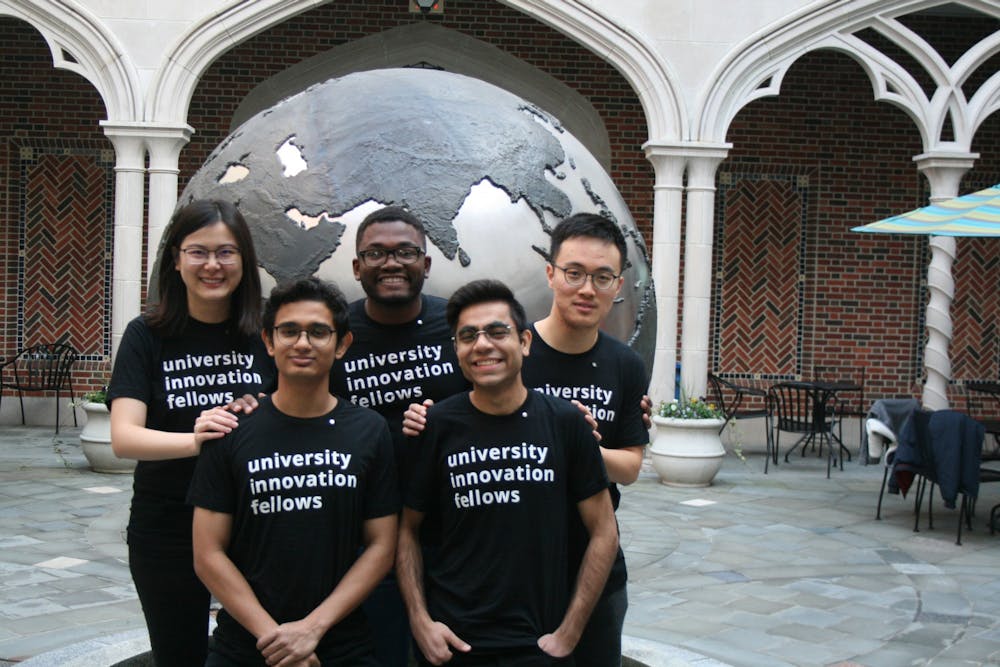Five students from the University of Richmond took part in the University Innovation Fellows program run through Stanford University's Hasso Plattner Institute of Design in the fall semester.
The program, created in 2012, aims to help students come up with creative solutions to problems at their respective universities, said faculty adviser Todd Lookingbill, professor of biology and geography and the environment. The program accepted 360 students from 90 institutions across 13 countries this year, he said.
UR is participating for the first time this year because of the work of the Creativity-Innovation-Entrepreneurship initiative out of the Office of the Provost, Lookingbill said. The CIE seeks to engage UR students with collaborations around real-world problems, according to its webpage.
“The University Innovation Fellows is a student initiative that falls under [the CIE] to think about how students can be change-makers on campus,” Lookingbill said.
Once accepted to the program in August, the students were declared as candidates and had to undergo a six-week training on an online education platform called NovoEd that detailed their tasks for each week, said Sandeep Kumar, sophomore and program fellow.
In addition, the candidates had a former UIF program alumnus as a mentor. They video-chatted with him each week as a team, updating him on their progress and asking questions as they came up.
The training focused on familiarizing the students with a process of problem-solving known as design thinking, Lookingbill said.
“You do not reject the first idea you get — you don’t censor a lot,” said sophomore and program fellow Kartikey Sharma. “You just try to come up with a way to solve a problem, and then filter those ideas.”
After training with a sample problem for six weeks, the candidates were launched as program fellows. It was up to them which problems they would address as part of the program, Sharma said.
“We had three domains that we wanted to work on,” Kumar said. “First was how to make faculty more innovative.”
In addition, Kumar said, the program fellows explored how to make the Technology Learning Center more accessible and how UR could improve the marketability of a humanities major.
Each member of the cohort took on specific challenges, Sharma said. They interviewed a variety of UR constituents, ranging from students to Career Services advisers.
Enjoy what you're reading?
Signup for our newsletter
The program fellows met two or three times a week during the program to discuss their findings and delegate responsibilities.
“The biggest aspect of it was communication,” Sharma said, “because these were sort of really team-focused challenges, and even if they weren’t team-focused, we had to be really efficient in how we did them.”
The program fellows conducted interviews and worked on drafts of proposals. Once they had settled on a final proposal, they submitted it to UIF on Dec. 13, 2019.
Sharma had positive things to say about his experience with the program.
“UIF really taught me to generate a great amount of ideas and accept other people’s ideas more,” he said, “not simply censor myself or others at point-blank range.”
Even ideas that do not appear helpful at first, Sharma said, can eventually grow to be good.
Kumar also praised the program.
“I’ve learned a lot,” he said. “The training process was really helpful.”
In mid-March, they will leave for a four-day trip to Silicon Valley to meet with innovation leaders and program fellows from other universities.
Contact news writer Alan Clancy at alan.clancy@richmond.edu.
Support independent student media
You can make a tax-deductible donation by clicking the button below, which takes you to our secure PayPal account. The page is set up to receive contributions in whatever amount you designate. We look forward to using the money we raise to further our mission of providing honest and accurate information to students, faculty, staff, alumni and others in the general public.
Donate Now



